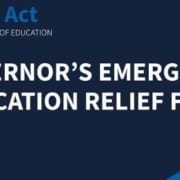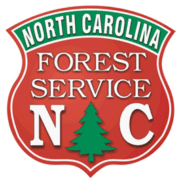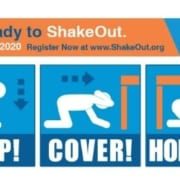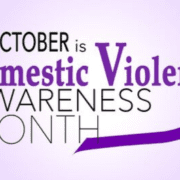NCDHHS Submits COVID-19 Vaccination Plan to CDC
100.1 FM ~ 1450 AM ~ WIZS, Your Community Voice ~ Click to LISTEN LOCAL
-Press Release, NCDHHS
North Carolina has submitted to the Centers for Disease Control and Prevention its COVID-19 Vaccination Plan. The goal of the plan is to immunize everyone who is eligible for and wants a COVID-19 vaccine.
“Leaders from across sectors came together under tight timelines to collaboratively develop a vaccine plan that leads with equity and prioritizes building trust. We will continue to update this plan as we learn more from the science and data on vaccines and in response to the needs of North Carolinians,” said NC Department of Health and Human Services Secretary Mandy K. Cohen, M.D.
North Carolina’s vaccine plan reflects five principles that guide the planning for and distribution of one or more COVID-19 vaccines in the state. The principles include:
1. All North Carolinians have equitable access to vaccines.
2. Vaccine planning and distribution are inclusive; actively engages state and local government, public and private partners; and draws upon the experience and expertise of leaders from historically marginalized populations.
3. Transparent, accurate and frequent public communications are essential to building trust.
4. Data is used to promote equity, track progress and guide decision-making.
5. Appropriate stewardship of resources and continuous evaluation and improvement drive successful implementation.
“North Carolina Emergency Management has been working with our partners at the NC Department of Health and Human Services to ensure we have a solid coronavirus vaccine plan,” said NCEM Director Mike Sprayberry. “From an operational perspective, this plan engages the state’s resources down to a county and local level and allows for flexibility based on data so we can pivot quickly and get the vaccine to those who are most in need.”
Currently, multiple vaccines are in development. For a vaccine to be authorized, studies must show it is safe and can prevent someone from catching COVID-19. Thousands of people have volunteered to be part of research trials across the United States and around the world to see if a vaccine is safe and prevents COVID-19 illness. Promising vaccines are being manufactured at the same time they are being tested, so there will be an initial supply when the science shows which vaccines are found to be safe and effective.
Once the Food and Drug Administration authorizes a vaccine, it will take time for manufacturers to ramp up production. Therefore, states will receive limited vaccine supplies at the start and will need to determine which populations receive the vaccine first. North Carolina’s prioritization framework was developed based on the National Academy of Medicine framework and in consultation with an external COVID-19 Vaccine Advisory Committee convened by the North Carolina Institute of Medicine.
“Our convening of the COVID-19 Vaccine Advisory Committee informed the state’s plan with independent and diverse perspectives from experts and community leaders across our state. The committee was composed of a broad range of leaders, including from those populations most significantly affected by COVID-19, including racial and ethnicity groups, health care, public health and academia, who worked diligently over the past month in order to fully address equity, inequalities and health issues that are driving the pandemic and creating mistrust,” Michelle Ries, Interim Director, North Carolina Institute of Medicine.
The NCIOM Vaccine Advisory Committee was co-chaired by:
- Dr. Goldie Byrd, Director, Maya Angelou Center for Health Equity at Wake Forest University;
- Dr. Leah Devlin, Professor, Department of Health Policy and Management at UNC School of Public Health; and
- Dr. Art Apolinario, a family medicine physician at Clinton Medical Clinic and Board member of the North Carolina Medical Society.
“My patients have taught me how important it is to recognize the mistrust that the current health care system has created with non-white communities,” said Apolinario, M.D., MPH, FAAFP. “We worked to ensure that racial disparities and equity in the delivery of care were recognized and put in the forefront of this COVID-vaccine decision-making process. We had stakeholders at the table to make sure we made unbiased decisions. Our work was independent, free of political bias, open to all opinions and strictly adhered to data and science as the main tenets for a good decision.”
“Old North State Medical Society is an established trusted health care entity in North Carolina. Since early 2020, Old North State Medical Society testing team has been focusing on efficient and effective ways of testing the vulnerable population for this aggressive and lethal COVID-19 virus, as well as promoting culturally sensitive education and messaging,” said Charlene Green, MD, President, Old North State Medical Society. “Trust is the key to success. Old North State Medical Society strongly recommends the inclusion of established community leaders in supporting the distribution of these new vaccines.”
This is an interim plan and will continue to be revised based on further information and guidance from the CDC and other federal agencies, increasing data on safety and efficacy from vaccine trials, ongoing input from state and local partners and the Vaccine Advisory Committee, and refinements needed as the state progresses through the planning and operational stages.
North Carolina’s COVID-19 Vaccination Plan builds on the foundation of the state’s overall goals and pillars of response to the pandemic: Prevention, Testing, Tracing, Isolation and Quarantine. North Carolina took early and aggressive action to slow the spread of the virus, built statewide capacity for testing, personal protective equipment supplies and contract tracing, developed hospital surge plans, and promoted aggressive prevention strategies.








